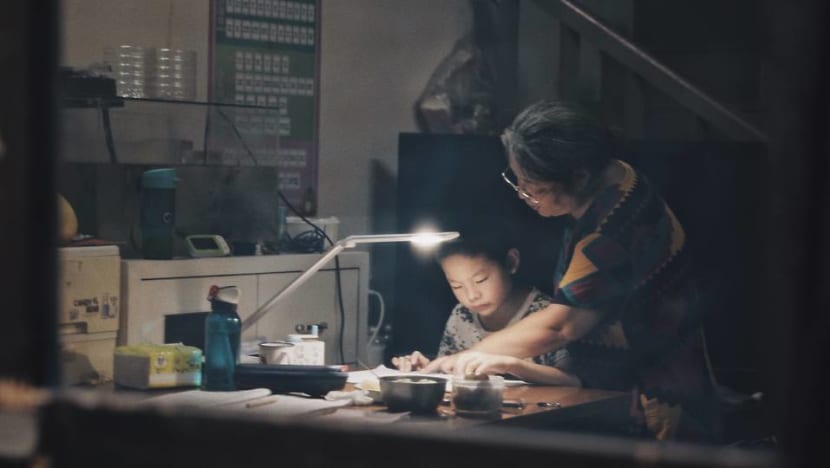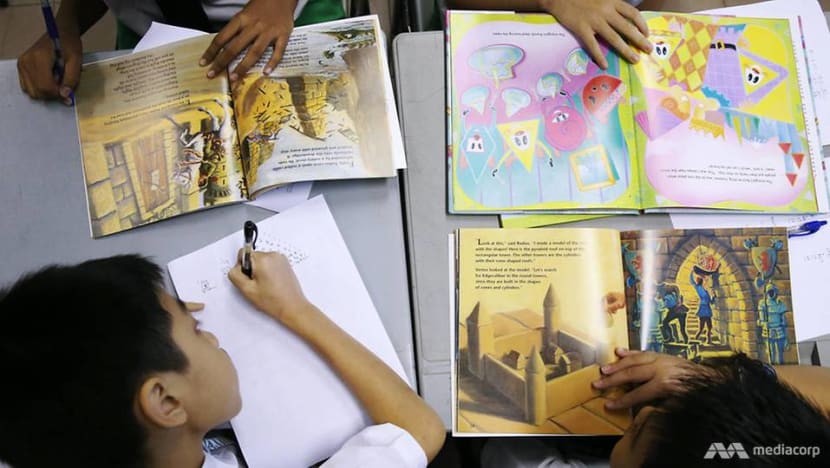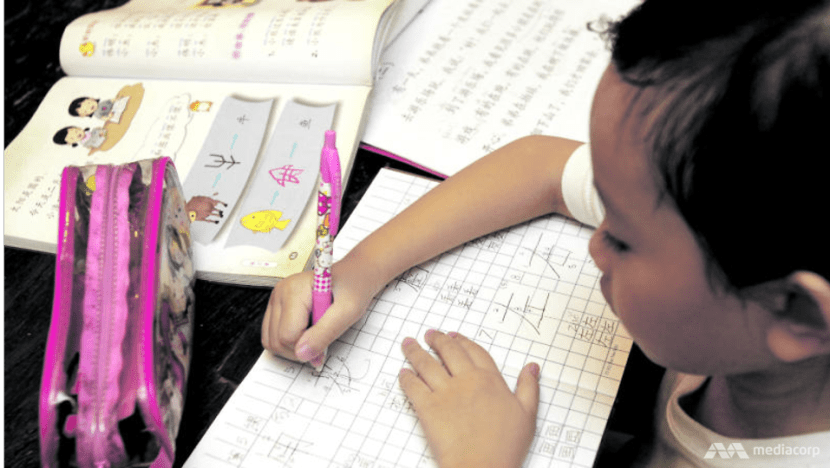commentary Commentary
Commentary: What is lost when we spend more on tuition
If we allow our perception of the “ideal child” to cloud our decisions, we may forget that our children are individuals who need their own space to grow and develop, says one mother of three.

(Photo: Unsplash/Wang Xi)
SINGAPORE: After MOE's announcement about reducing testing at certain educational milestones, many tuition centres have stepped forward to address parental concerns that the lack of testing would make it harder for them to assess how their child was doing in school.
Singapore families spend a staggering amount of money on education including tuition.
An HSBC survey sets the figure at around S$96,000, from primary school all the way to the undergraduate years. We rank third in such spending, after parents in Hong Kong and the United Arab Emirates.
The drivers behind this trend are diverse, though most parents would say they want to ensure their children keep up in a rigorous education system.
Some also want their children to accelerate their learning, believing that this would either help them to nail the Direct School Admission selection or simply pave the way to a brighter future.
The basic instinct behind these could be fear. Parents are fearful that they are not doing enough and their kids may get left behind, since “everyone else is also doing it.”
Some parents may try to guide their kids with their schoolwork at home, and panic when they meet a Math question they cannot solve.
They also worry about an increasingly volatile and machine-operated world, and are left floundering as to how to future-proof their children.
TUITION IS MULTI-FACETED
There are also practical reasons why parents turn to tuition centres.
Some parents may also feel inadequate to teach their child as the syllabus (especially for Math and Science) has advanced in leaps and bounds, and the mere thought of solving a Primary 6 problem sum may cause us to break a sweat.

For some parent-child pairs, coaching the child personally does not seem to work. Either the child is not receptive to the parent, or the parent loses patience with the child; sometimes, both.
Others, like freelance writer Ms Evelyn Tan-Rogers, have counted the costs. It makes more sense to turn to tutors so they can dedicate more time to productive work or self-development.
“Rather than me spending time figuring out the Science syllabus, or how to teach Chinese, I would rather just get a good teacher,” she said.
Tuition need not be confined to just struggling children too; many high-performing kids are having tuition to engage their curious minds and satisfy their thirst for learning. You may even hear of kids asking for tuition themselves, to enhance their learning or prepare for math and science competitions.
READ: Parents, don’t shy away from a competitive education system, a commentary
Whichever scenario applies, it behoves parents to be aware of the dangers of pushing the child too much. You may damage not only the parent-child relationship but also your child’s self-esteem. They may grow up believing that nothing they do is ever good enough.
As parents, we need to step back and be objective about where each child is at.
We should recognise that they are individuals in their own right, and our job as parents is to nurture their strengths and talents.
THE OPPORTUNITY COSTS OF TUITION
It is interesting that even as MOE is launching initiatives to de-emphasise academic achievement, parents are still jostling for achievement in this arena.

This goes to show how entrenched and normalised tuition is here. (So much so that when one of your kids has a birthday party, half of your invitees cannot attend as their Saturday and Sunday mornings are packed with classes.)
I was speaking to a fellow mother recently and she raised a pertinent question:
If not tuition, then what else can we do?
Imagine a time when tuition does not exist, or is just one option among many when it comes to family time. What would you and your children be doing?
This question may help us grasp what is actually lost when a disproportionate amount of time is spent on tuition.
When tuition no longer is about plugging real needs and learning gaps, but about chasing an abstract idea of a “brighter future,” there are opportunity costs involved.
In our zeal to shape our kids into better versions of ourselves, we may lose sight of the unique individual standing before us, who possesses unique strengths and weaknesses.
If we allow our perception of the “ideal child” to cloud our decisions, we may forget that they too are individuals who need their own space to grow and develop.

READ: Protecting your kids from failure isn't helpful parenting, a commentary
Another risk is learned dependence. While our children may initially need the additional coaching, they may also grow dependent on them over time.
It goes to reason then that the more tuition one receives, the greater the reliance, and the less opportunity to develop a can-do spirit. Also, the less the child feels in control of his learning.
UNDERSTAND YOUR CHILD
Back to the question – what can we do then?
For starters, we can go back to the fundamentals. Invest our limited time on understanding our children, and building a solid parent-child bond that can withstand life’s challenges.
Also, give them space to develop in their own unique areas of interest, and at their own pace.
By understanding your child's strengths and interests, you can be his greatest advocate and supporter.
If your child is made for academic achievement, by all means go for it. But if his strengths lie in other areas, we should accept that there are different forms of achievement, and avoid forcing a square peg into a round hole.
By seeing your child for who he really is, and supporting his interests, you are enabling a healthy esteem and clear sense of self to blossom. Your child begins to develop clear directions and goals for his life, and is less likely to make impulsive choices.

When I was young, I actually enjoyed studying. Although I did well enough to get into one of the top Junior Colleges, I felt a desire to pursue Mass Communications in a polytechnic. My parents supported me even during a time when a Polytechnic diploma wasn't seen as a desirable course in life.
Even at the young age of 16, I had a clear sense of who or what I wanted to be. Now whether it was for the better or worse I will never know, but the bottom line is, when my parents supported my decision, I felt my identity being affirmed.
Something deep in my teenage personhood was being acknowledged and seen.
READ: Life Beyond Grades a worthy cause but be careful not to trivialise failure, a commentary
DEALING WITH THE FEAR
To push back on an excessive tuition culture, we will need to deal with the root cause – fear.
We all feel it, to differing extents and consequences. Fear is having to see your child suffer the shame of poor grades or not getting into the course of their choice. Fear is seeing them fail and not knowing what you can do to help.
All parents are worriers, but the first step to overcoming this emotion is to be aware of our fears.
We can then approach tuition with intention – to equip our children with skills or thinking processes that may be lacking, and not just confusion.
Next is to avoid comparison. We may yearn for our children to bring home awards and trophies, like so-and-so who lives next door, but we all know this leaves very little room for our children to succeed on their own terms.
Finally, we can ask ourselves:
What is it that truly matters to us?
If we accept our children for who they are, guide them through their growing-up years, and instil the values of diligence and perseverance, we are not only future-proofing them, we are also building an inner resource of resilience and strength that will help them overcome many challenges in life.
They will have a good shot at becoming the best versions of themselves, which may far exceed our expectations.
June Yong is a mother of three, an educational therapist and owner of Mama Wear Papa Shirt, a blog that discusses parenting and education in Singapore.














